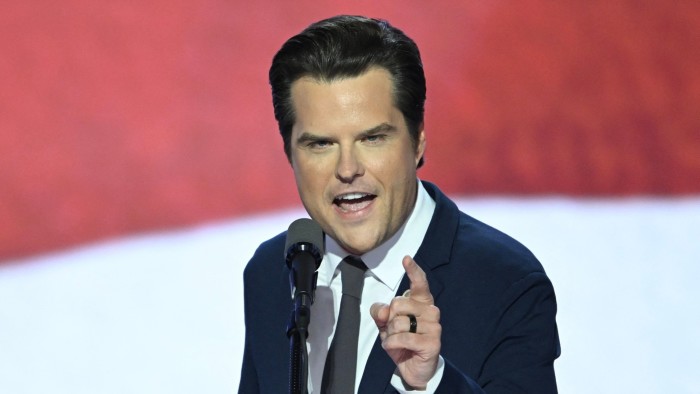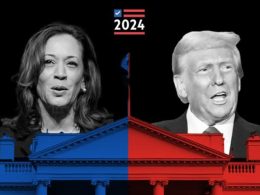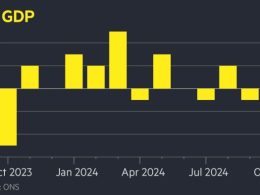Unlock the White House Watch newsletter for free
Your guide to what the 2024 US election means for Washington and the world
As Donald Trump’s choices for his top team have been revealed this week, it has been hard to know which is the most dumbfounding. Is it the Fox News presenter Pete Hegseth as head of the world’s most powerful defence department? Is it Matt Gaetz, who has said the FBI and justice department must be brought “to heel” or abolished, as chief law enforcement officer? Or is it the vaccine sceptic Robert F Kennedy Jr to lead the $1.7tn health budget?
What is clear is that many of Trump’s choices are about as bad as could have been expected. The “adults in the room” who provided some checks in his first term will be replaced this time by appointees chosen entirely for loyalty and subservience, not experience or suitability. This may yet be a moment of over-reach. Senate Republicans, some as aghast as anyone at Trump’s picks, might side with Democrats to block one or two. Some appointees may cause chaos — though Trump thrives on chaos. At worst, however, his choices may represent the lurch towards authoritarianism that his opponents and many US allies have feared.
His picks are not universally disastrous. Marco Rubio as secretary of state and Mike Waltz as national security adviser are traditional foreign policy figures who believe in a strong America and spending on its armed forces.
Charging two entrepreneurs, Elon Musk and Vivek Ramaswamy, with pruning government red tape and spending is not, in principle, a nonsensical idea. But Musk’s hard-charging approach risks destabilising US governance, and the world’s richest man has a chance to bend regulators to his will, apparently unconstrained by huge conflicts of interest. At the Department of Health and Human Services, meanwhile, the appointment of Kennedy, whose maverick views put him at odds with the very agencies he would supervise, could do real damage.
It is in the security, defence and law enforcement fields, however, that Trump’s choices sound the loudest alarms. Step one in the strongman leader’s playbook is to ensure control over the spies, generals and prosecutors. As director of national intelligence, former Democrat Tulsi Gabbard combines all the zeal of a Trump convert with unsettling apparent sympathies for Russia’s Vladimir Putin. Hegseth, the Pentagon pick, shares Trump’s obsession with ending “woke shit” such as diversity, equity and inclusion programmes that they claim have weakened the military. But alongside reports of a potential executive order to create a review board to remove generals “unfit” for leadership, his appointment raises concerns that the president-elect aims to purge any who might reject orders they see as unconstitutional.
Trump’s nomination for attorney-general, Gaetz, has faced a justice department investigation into alleged sex trafficking, and a House probe into alleged ethics breaches including sexual misconduct, drug use and the acceptance of gifts — all of which he has denied. But his obeisance to Trump seems without limit. His confirmation would clear the way for Trump to use all the might of US law enforcement to exact vengeance on those — in politics, the media and the justice system itself — he believes have wronged him.
Two sources of hope remain. One is that the powerful defence, justice and health bureaucracies can stand up for the rule of law and for public accountability, including upholding scientific standards. The second is that the few Senate Republicans who have not entirely thrown in their lot with Trump are prepared to put country ahead of party and reject the most egregious nominations — Gaetz above all — and resist the president-elect’s push to make recess appointments that would circumvent the Senate approval process. This ability to act as a check on the presidency is among the most vital powers of the upper chamber. The reality, however, is that since 2016, Trump has remade the Republican party in his own image. Now he is poised to do the same with the US government itself.
Source link









